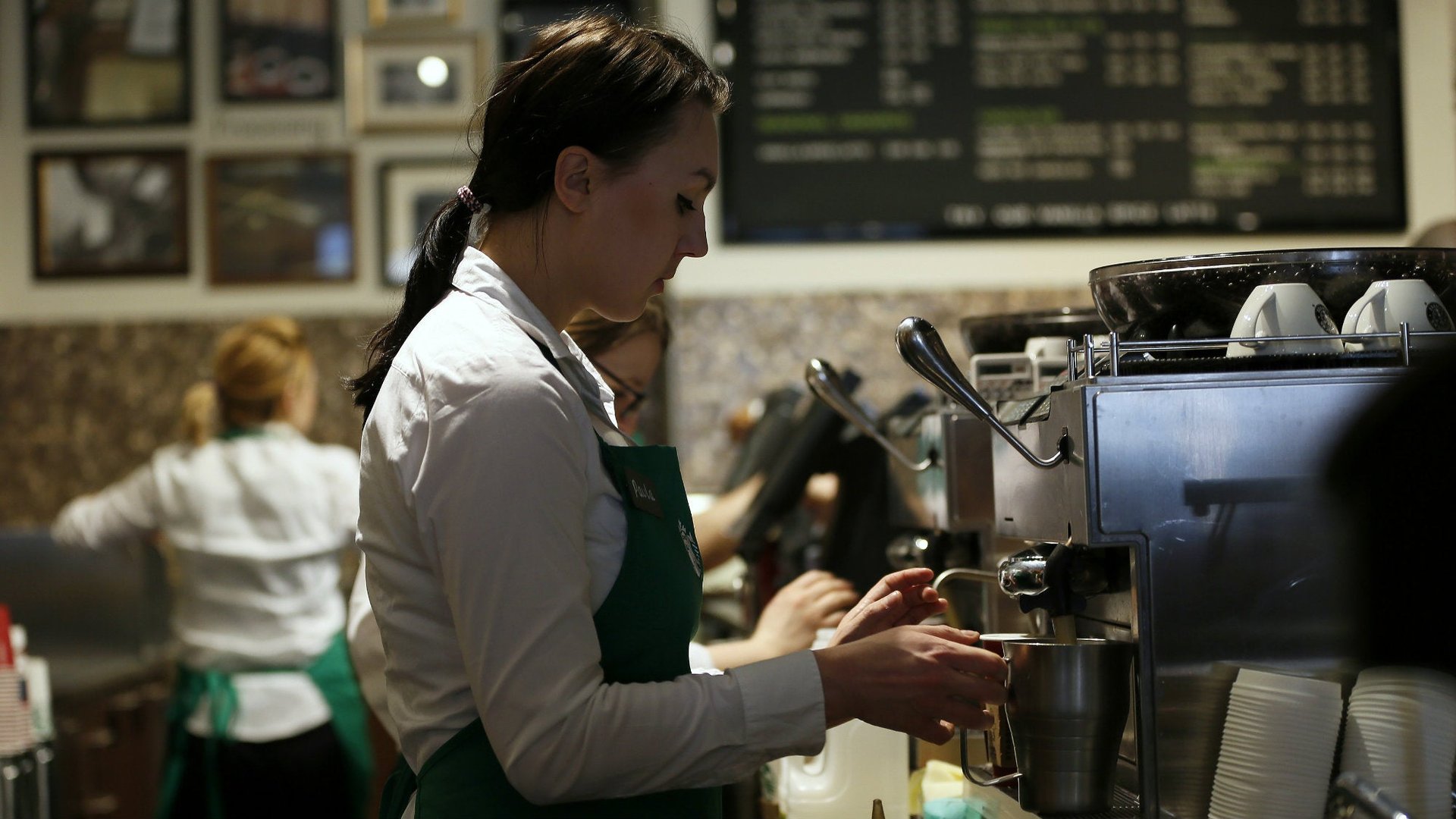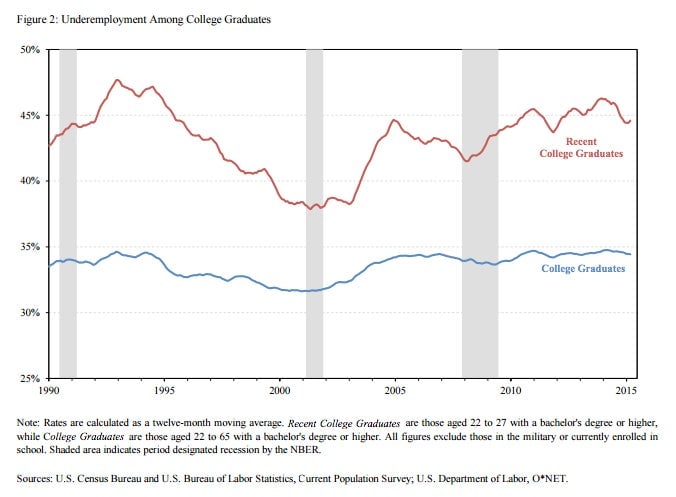Millennials actually have it better in the job market than Generation X—with one big exception
An enduring image of the Great Recession is the debt-addled millennial with a fancy degree settling for a job as a barista at a coffee shop. Although this is a troubling sign for the US economy, new research suggests that it isn’t such a new thing, nor is it necessarily bad for college graduates themselves.


An enduring image of the Great Recession is the debt-addled millennial with a fancy degree settling for a job as a barista at a coffee shop. Although this is a troubling sign for the US economy, new research suggests that it isn’t such a new thing, nor is it necessarily bad for college graduates themselves.
The trouble Millennials have getting good jobs out of college isn’t unique. Remember McJobs in the 1990s? The iconic movie of that era, Reality Bites, featured a clever Generation X college graduate folding sweaters at the Gap. For young grads in the US back then, underemployment—working in a job that doesn’t require the degree you have—was in fact even worse than it is now (the red line in the chart below).

Granted, the underemployment rate among recent grads is currently around 45%, and was trending upward even before the financial crisis. But many of these aren’t McJobs—more than half are white-collar positions, the research shows. And college grads steadily move out of these jobs into positions more in line with their education. About 50% of 22-year-olds were underemployed in 2009, falling to 42% by the time they turned 27.
But only about 25% of young non-college graduates now have white-collar jobs, like working as an office assistant. This type of work once provided a path to the middle class for many non-degree holders. If there are enough college grads willing to do this sort of work, it makes a degree becomes a de facto requirement for the job, even if it’s not necessary for the tasks at hand.
Around 40% of 18-to-24 year olds in the US are now enrolled in college, up from 30% in the late 1980s and early 1990s, boosting the ranks of graduates competing with non-degree holders for jobs. College grads have always found it easier to get a job than Americans with less education, but this gap widened during the recent recession, and hasn’t yet returned to pre-crisis averages:
The lack of appealing entry-level jobs may be encouraging degree-less job seekers to quit the labor force entirely. Erik Hurst, an economist at the University of Chicago Booth School of Business, believes that there has been an increase in the ranks of uneducated young men not working because they prefer leisure to the sorts of jobs on offer. He worries this will have a negative and lasting impact on their skills and lifetime earnings.
Jobs early in a person’s career are crucial to their development, even if those positions don’t require a degree. That first job, however menial, is particularly critical for people without a degree, because experience is all they have to show on their résumé. If the standards for a barista job have been raised—with only college degree-holding applicants now considered—this could sow the seeds of inequality far into the future.